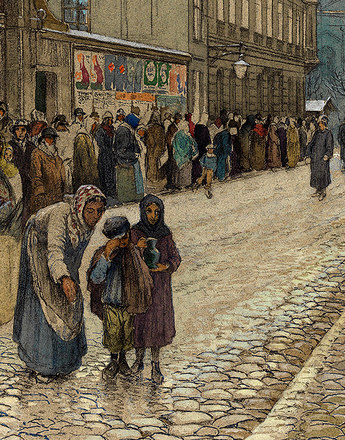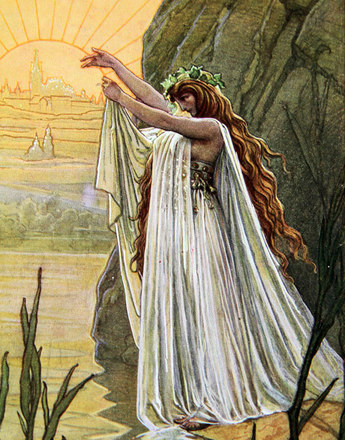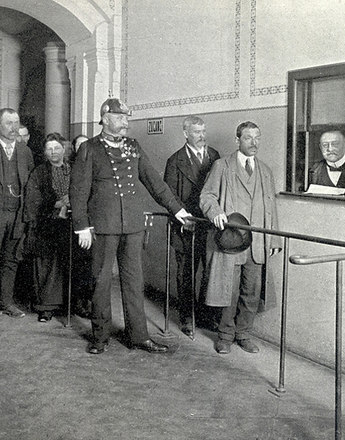Anti-militarism in Bohemia: “The fit are enslaved”
The anti-militarist movement in Bohemia illustrates how ambivalent and complicated the relationship was between the military, politics and society within the multinational Habsburg Monarchy.
In German Nationalist circles, Czech soldiers were regarded as disloyal war resisters, an unreliable and destructive force opposed to the army and swayed by anti-military propaganda. To judge by the unproblematic mobilisation at the start of the First World War, this imputation was remote from reality. Most Czechs fought loyally on the side of the Monarchy.
But how did the idea of the disloyal Czech come about? In this regard, the anti-militarism developing in Bohemia towards the end of the nineteenth century played a significant if mainly symbolic role. Its advocates did not reject the military in general but rather criticised the way it was organised in practice. The Czech National Socialist Party (Česká strana národně sociální, ČSNS) was particularly vociferous. There were two main elements involved. Like the majority of left-wing parties, the ČSNS favoured the “militia system” rather than universal conscription, but this was rejected by the authorities because of its subversive potential. And second, national tensions were becoming increasingly evident. The anti-militarism of the ČSNS was designed primarily to draw attention to itself and to national interests. While the 1867 Compromise had given Hungary a considerable degree of independence with regard to military policy, the Czechs had been completely overlooked. They were unable to establish a regional territorial army like the Hungarian Honvéd, nor were orders allowed to be given in Czech. The ČSNS reacted ferociously when in 1898 some reservists were threatened with consequences because they insisted on answering the roll call with the Czech "zde" instead of the German "hier". It described itself as a representative of Czech rights within the Monarchy – amongst other things by criticising the German-dominated army.
The ČSNS youth organisation was particularly active when it came to anti-militarism. Soldiers were urged in leaflets and brochures to register their protest at the medical examination for recruitment – and some did so. In 1905, men from Babice turned it into a Carnival-like funeral procession. They had banners attached to their black-draped cart saying: "The army, the grave of our youth, the prison of our freedom" and "The fit are enslaved". Demonstrations like this were copied elsewhere, but they were not widespread. Martin Zückert mentions in this context that the military here offered "[...] a platform for symbolic protest actions" and that "rites of passage" evolved around the recruitment process "expressing a farewell to youth".
The First Anti-Military Congress in Prague in 1907 and the Bohemian anti-war demonstrations following the annexation of Bosnia and Herzegovina were further examples of anti-militarism. After soldiers announced publicly in 1909 that they would refuse to shoot at Serbs, the authorities began to take action against the leading anti-militarists in the ČSNS. There was a major trial with 44 convictions, and the anti-militarist organisations were disbanded.
All of these occurrences might have given rise to the idea of Czech disloyalty, but it should be pointed out that Czech anti-militarism was a very small-scale movement – as was well illustrated, as mentioned above, by the unproblematic mobilisation at the start of the First World War. The majority of citizens were also more interested in strengthening the military rather than the national anti-militarism of the ČSNS.
Translation: Nick Somers
Zückert, Martin: Antimilitarismus und soldatische Resistenz. Politischer Protest und armeefeindliches Verhalten in der tschechischen Gesellschaft bis 1918, in: Cole, Laurence/Hämmerle, Christa/Scheutz, Martin (Hrsg.): Glanz, Gewalt, Gehorsam. Militär und Gesellschaft in der Habsburgermonarchie (1880 bis 1918), Essen 2011, 199-220
Quotes:
„The army, the grave of...": quoted from: Zückert, Martin: Antimilitarismus und soldatische Resistenz. Politischer Protest und armeefeindliches Verhalten in der tschechischen Gesellschaft bis 1918, in: Cole, Laurence/Hämmerle, Christa/Scheutz, Martin (Hrsg.): Glanz, Gewalt, Gehorsam. Militär und Gesellschaft in der Habsburgermonarchie (1880 bis 1918), Essen 2011, 199 (Translation)
"[...] a platform for symbolic protest...": ibid., 214 (Translation)
-
Chapters
- Militarisation and nation-building: an interaction
- From the Theresian reforms to the battle of Königgrätz
- Universal conscription as the fundamental militarisation of society
- Military training: violence as a military instrument for achieving obedience
- Suicide, questions in parliament and pathological military discourse
- Anti-militarism in Bohemia: “The fit are enslaved”
- Total mobilisation – the First World War and special measures







